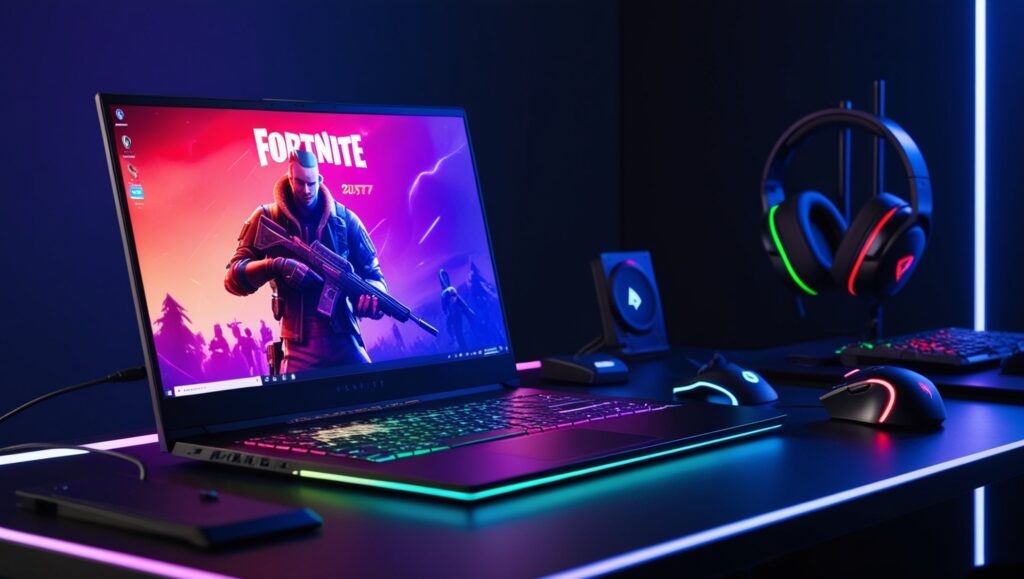Is your laptop crawling at a snail’s pace? 🐌 You’re not alone. Countless users face the frustration of a slow and laggy laptop, turning simple tasks into time-consuming ordeals. Whether you’re trying to work, game, or just browse the web, a sluggish computer can seriously dampen your productivity and enjoyment.
But don’t despair! There’s hope for your struggling device. In this article, we’ll dive into the root causes of laptop slowdowns and explore effective solutions to breathe new life into your machine. From quick fixes to hardware upgrades, we’ve got you covered. Get ready to say goodbye to those infuriating loading screens and hello to a smoother, faster computing experience.
Let’s kick things off by exploring how to fix a slow laptop, tackle the specific issues faced by gaming laptops, and highlight some products that can help boost your system’s performance. By the end of this post, you’ll be equipped with the knowledge to transform your sluggish laptop into a speed demon. 💨💻
How to fix a slow laptop
Identify the Cause
To effectively fix a slow laptop, it’s crucial to pinpoint the root cause of the problem. Common issues include:
- Insufficient RAM
- Outdated hardware
- Malware or viruses
- Too many startup programs
- Fragmented hard drive
- Overheating
Quick Fixes for a Slow Laptop
Here are some immediate steps you can take to improve your laptop’s performance:
- Close unnecessary programs and browser tabs
- Clear temporary files and browser cache
- Disable visual effects
- Update your operating system and drivers
- Run a malware scan
Optimize Your Laptop’s Hardware
For long-term improvements, consider these hardware optimizations:
| Upgrade | Benefits |
|---|---|
| SSD Installation | Faster boot times and app loading |
| RAM Upgrade | Improved multitasking and overall speed |
| CPU Upgrade | Enhanced processing power (if possible) |
Software Optimization Techniques
Implement these software-based solutions to speed up your laptop:
- Uninstall unnecessary programs
- Disable startup programs
- Defragment your hard drive (for HDDs only)
- Clean up your disk space
- Adjust power settings for better performance
Now that we’ve covered various methods to fix a slow laptop, let’s explore why gaming laptops might experience similar issues despite their powerful hardware.
why is my gaming laptop so slow and laggy
Your gaming laptop may be slow and laggy due to various reasons. Common culprits include outdated hardware, insufficient RAM, overheating, too many background processes, or a fragmented hard drive. Malware or viruses can also impact performance. Regular maintenance, updating drivers, and optimizing settings can help improve speed and reduce lag in your gaming experience.
Products featured in this article
Featured Products for Improving Laptop Performance
Top Hardware Upgrades
Upgrading your laptop’s hardware can significantly boost its performance. Here are some recommended products:
-
Solid State Drives (SSDs)
- Samsung 870 EVO SATA SSD
- Crucial MX500 SSD
- Western Digital Blue SSD
-
RAM Modules
- Corsair Vengeance DDR4 RAM
- Kingston HyperX Impact DDR4 RAM
- Crucial Ballistix DDR4 RAM
Software Solutions for Optimization
In addition to hardware upgrades, software tools can help optimize your laptop’s performance:
| Software | Purpose | Key Features |
|---|---|---|
| CCleaner | System cleaning | Junk file removal, registry cleaner |
| Malwarebytes | Malware protection | Real-time protection, malware removal |
| Advanced SystemCare | All-in-one optimization | Performance boost, privacy protection |
Cooling Solutions
Overheating can cause laptop slowdowns. Consider these cooling products:
- Laptop cooling pads (e.g., Cooler Master NotePal X3)
- Thermal paste for CPU (e.g., Arctic MX-4)
- Compressed air cans for dust removal
These products can help address common issues like slow startup, freezing, and overall sluggish performance. By combining hardware upgrades, software optimization, and proper cooling, you can significantly improve your laptop’s speed and responsiveness.
More articles
How to improve your productivity with apps for Surface
Surface devices are powerful tools for productivity, and with the right apps, you can take your efficiency to the next level. Here are some must-have apps to boost your productivity:
- Microsoft Office Suite
- OneNote
- Adobe Creative Cloud
- Trello
- Evernote
| App Category | Recommended Apps |
|---|---|
| Note-taking | OneNote, Evernote |
| Project Management | Trello, Microsoft Planner |
| Creative Work | Adobe Creative Cloud |
| Communication | Microsoft Teams, Slack |
Surface Pro 9 device design
The Surface Pro 9 boasts a sleek and modern design that combines functionality with aesthetics. Key design features include:
- Slim profile (9.3mm thickness)
- 13-inch PixelSense display
- Built-in kickstand
- Detachable keyboard
- Multiple color options
What is antivirus software?
Antivirus software is a crucial tool for protecting your laptop from malicious threats. It works by:
- Scanning files and programs for known viruses
- Monitoring system behavior for suspicious activities
- Blocking potentially harmful websites
- Providing real-time protection against new threats
Investing in reliable antivirus software can significantly improve your laptop’s performance by preventing malware-related slowdowns and ensuring overall system security.
Now that we’ve explored these additional topics, let’s recap the main points discussed throughout the article to help you address your slow and laggy laptop issues effectively.
A slow and laggy laptop can be frustrating, but there are several steps you can take to improve its performance. By identifying the root causes, such as outdated hardware, excessive background processes, or malware, you can implement targeted solutions to speed up your device. For gaming laptops, ensuring proper cooling, updating drivers, and optimizing game settings can significantly enhance your gaming experience.
Remember, regular maintenance is key to keeping your laptop running smoothly. Consider upgrading hardware components, clearing unnecessary files, and using optimization tools to keep your device in top shape. If you’ve tried these solutions and still experience issues, it may be time to consult a professional or consider investing in a new laptop that meets your performance needs.


